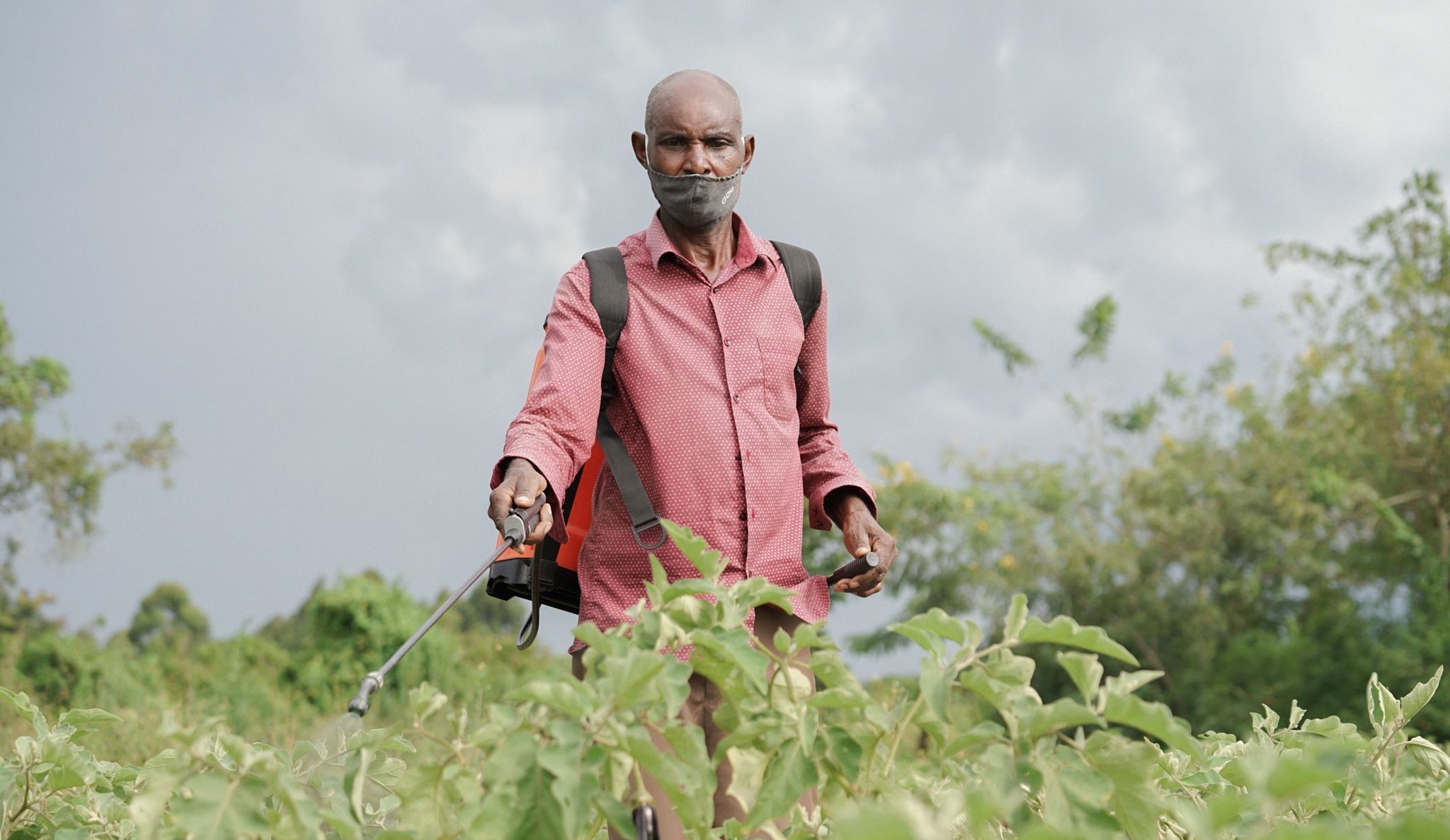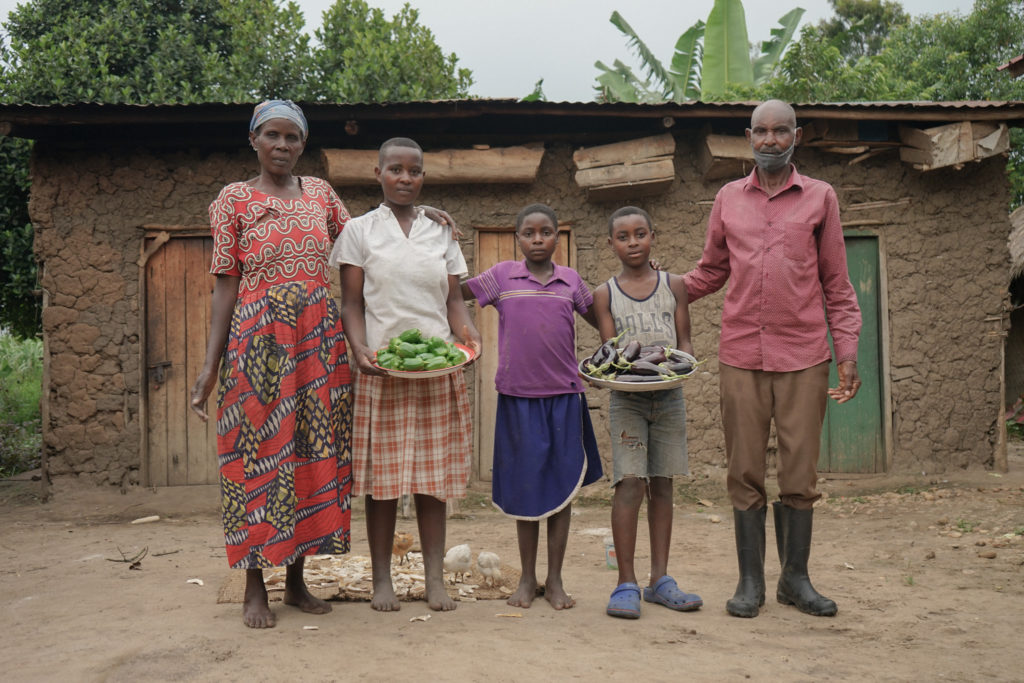Organic Manure for a Sustainable Future

David Miryango is a full-time farmer supporting a family of four. The cost of investing in inorganic manure, which is the most crucial element that he needs every planting season, has worn David out. For communities like his, spending all of their income on just one variable of the equation makes no financial sense, and those who are on the brink of crossing the line to hunger are trapped in an ineffective model of farming, just like David.
Raising the Village (RTV), developed programs that include good-agronomic-practice training offered to every community in each district to specifically address issues that farmers like David are faced with in last-mile rural Uganda. These trainings are headed by agronomists from the district government, with support from RTV field officers, where farmers are taught how to maximize their small gardens and reap and to plant in lines. The trainings also cover good practices such as weeding, mulching, and post-harvest-handling. One of the most crucial skills that these trainings introduce to the communities is the application of organic manure and how to best utilize it in gardens so that they can say goodbye to expensive and inorganic methods for good.
There is a reason why this type of manure is referred to as organic. It is locally made by readily available household materials such as waste matter harvested from animal houses and urinals, mixed with ginger, chilly, and ash. The cost of this kind of manure is also minimal. Organic manure functions exactly like inorganic manure, not to mention that it’s a much more sustainable and healthy choice both for the communities and for the soil in the long run. It is naturally derived, protecting communities and farmers from the risk of toxic side effects as well.
“I learnt how to use organic manure which is cheaper than inorganic manure. I would spend around 70,000 UGX (19$) every planting season, which was a significant investment for me.”
Another boost to David’s farming efforts facilitated by Raising The Village teams on the field was to provide him with Ready To Eat (RTE) boxes, composed of purple eggplant, green pepper, beetroot, Sukuma wiki, red pepper, ginger along with garden tools like sprayers, garden hoes, garden forks, watering cans. Having support of this kind results in accelerated output of productivity in farmers, in their crops but most importantly, collectively, in all of the communities. David has also established his own small nursery bed to plant seeds that he extracts from his garden, assuring his family a nutritious meal everyday for the foreseeable future.
“Raising The Village gave us seeds and tools to use in my garden. Now I have garden tools and vegetables that I couldn’t even afford before. I will have more food and income to support my family.”

Organic manure is one of the healthiest sources of income for farmers like David, the way it’s being used is a good example of an affordable model that provides him and his family with a sustainable food supply that is also nutritious in the long run. It is crucial for community members who are faced with the challenges of ultra-poverty to have access to tools and resources, be it organic manure or something entirely different, that are locally made and that can be sustained for longer periods of time to help establish a permanent model of farming and a healthier way of living.

